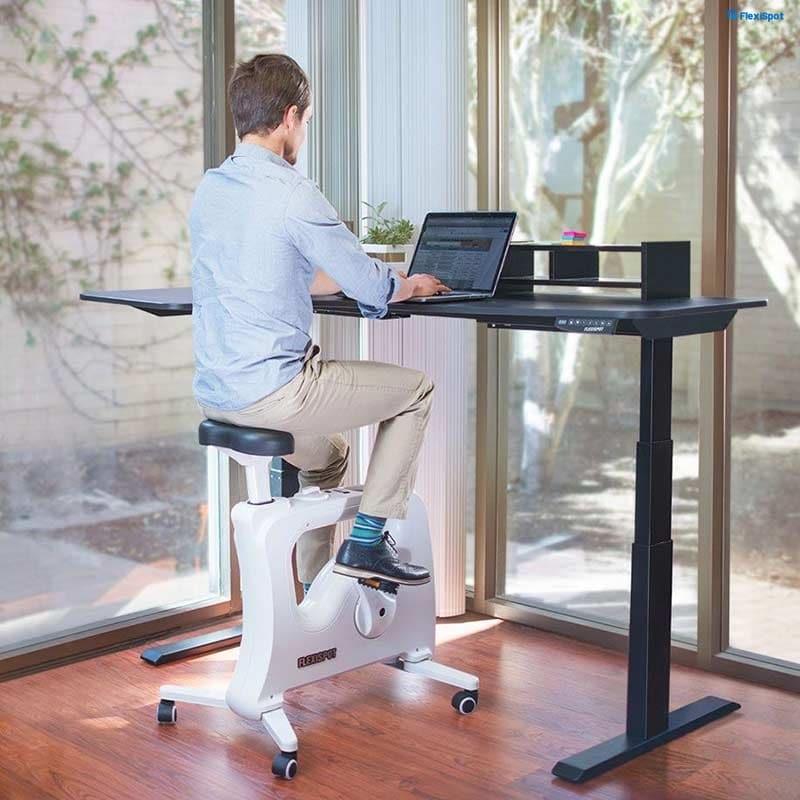Did you know that stress is not necessarily a bad thing?
Stress actually helps people have that extra energy to focus and do their tasks for the day. But when you’ve been feeling stressed out for quite a while, it would take a toll on your health. You will notice that you will have difficulty to focus and concentrate on your tasks at hand. You also forget the things that you have to do because your brain can only take so much.
Your brain’s ability to solve problems, retain attention, concentrate, remember things, and have good decision-making decreases when you are in a state of stress. You constantly worry. You fear about the next thing that will happen and you feel overwhelmed about the anxiety that’s forming inside of you.
When you are stressed, you are also unable to control your behavior and the emotions that come rushing in. You might notice that you have become irritable more often and that you say things that aren’t representative of yourself. You lose self-control and sleep. You feel restless and unable to keep up with a healthy diet.
But there are ways to control your stress and not let it control your life for you. So many doctors and researchers have come forward with their findings and aim to help people whose brains are under a lot of stress.
Here are some steps you can do to let your brain breathe a sigh of relief.

1. Help your brain by listing things down.
Since your brain gets stressed with everything it has to remember, write things down. Pick up a pen and paper or open a Notes app in your laptop and phone and begin writing a to-do list. When a task that you have to do pops in your head, write it down immediately. Force yourself to do things if you are free at the exact moment that it crossed your mind. Set an alarm on your phone to remind you of a meeting, a date, or something that you need to cross off in your to-do list for the day.
2. Slow down and give things time to finish.
You are under stress so it’s understandable that it might take longer for you to accomplish your tasks. Be kind to yourself and do not force accomplishing a big project right away. Take things slowly. Break a big task into small, actionable steps that you can actually do everything. Take one thing at a time, tackle every day one at a time. And plan ahead in your schedule that you are going to take more time to finish something. Inform your colleagues and superiors about this.
Plus, you also need extra time to double-check your finished tasks. Again, you are under stress so you’d want to double-check everything first to see if you forgot anything and if there’s something still left to be done or corrected. These things, when unchecked, can double your stress in the future.

3. Avoid multi-tasking.
The brain is not wired to multi-task. You might take pride in your ability to multitask but it’s actually doing more harm than good to your brain. Your brain is not able to concentrate and you make it jump from one thing to another. It will someday take a toll on your brain so take care of your brain by working at one task at a time. Finish all your tasks first before moving to another task. You could after all break down your tasks into small steps, as mentioned above, so that you get to do a little bit of everything and all are able to move forward.
4. Know when it’s time to pause and take it.
Do not hesitate to have a break. If you are so stressed out, it’s your brain telling you to rest. Listen to it. Pause. Stand up and stretch. Take deep breaths. Listen to soothing music. Take a walk outside. Resist the urge to check your phone and scroll because this can only trigger and cause you more stress. Let your brain take a break and it will be thanking you for sure.
During this break time, be committed to it. Turn off your notifications and do not think about anything else other than resting. The brains shift from one thought to another when the phone notifications are on so turn them off. Schedule another dedicated time to check them.

5. Have a schedule for worrying.
Since you are going to worry anyway, allow your brain to do so at a scheduled time of the day. You can choose an afternoon time, or whatever hour you want really, to let your thoughts run wild and free. The thought has to get out of your head in one way or another so release it. Do not check on social media or the news. Your time to worry should not be near this time for information consumption.
6. Exercise, have a good diet, meditate, and sleep well.
The brain is part of your body so take care of your health, and you take care of the brain. Allot time for regular exercise and avoid food that can even alleviate your stress. You should avoid saturated fats, sugar, and alcohol. Exercise your brain by meditating. Be mindful of your surroundings and try as much as possible to be present at the present. Make sure you are getting the right amount of sleep. Your mind must have a regular time of the day that signals it’s time to sleep.

7. Invest in tools that can help you reduce your stress.
You need to identify your stressors so you can effectively address them. For example, if your workload has been burning you out, you might consider investing in tools to help you be more efficient at work. Using ergonomic pieces can help boost your productivity and improve your efficiency which makes work more motivating and less stressful to do.
Final Word
Remember to be kind to yourself. Give yourself time to heal and find that place of peace. Take one day at a time. Know that there are many people who love and support you no matter what. You’ll slowly get there as long as you believe and never stop doing, no matter how small or simple the step may be.

